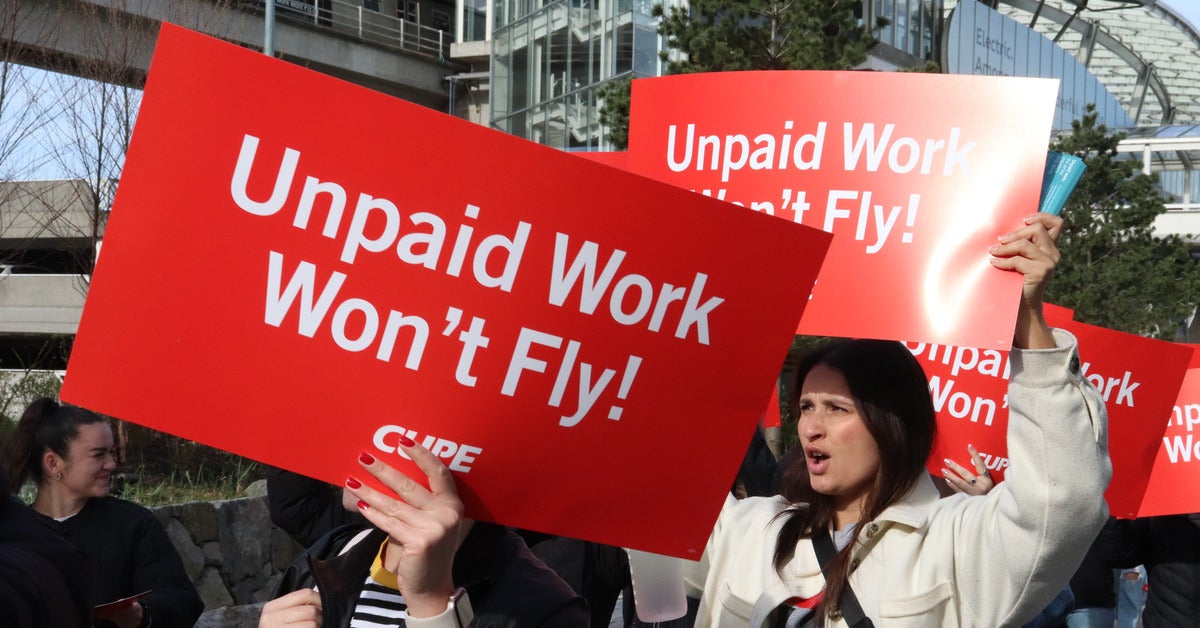Strike Air Canada: Why Flights Remain Grounded
The strike Air Canada began on Saturday, August 16, when 10,000 flight attendants represented by the Canadian Union of Public Employees (CUPE) walked off the job. Despite a return-to-work order issued by the Canada Industrial Relations Board (CIRB), attendants refused to resume duty. This defiance has left Air Canada planes grounded, disrupting travel for thousands of passengers.
Air Canada Suspends Profit Forecast Amid Standoff
With the strike entering its third day, Air Canada suspended its third-quarter and full-year profit forecast on Monday. The airline, which normally transports 130,000 passengers daily, had planned to restart operations on Sunday evening. However, the union’s refusal forced a delay, intensifying financial uncertainty for Canada’s largest carrier.
Union Demands Fair Pay and Ground Work Compensation
The strike Air Canada dispute is centered on pay. Flight attendants are demanding higher wages and compensation for ground duties, such as boarding and assisting passengers. Currently, they are only paid once the aircraft is moving. This demand has resonated with many Canadians on social media, who argue that attendants deserve to be paid for all aspects of their work.

Canadian Government’s Options to End the Strike
The CIRB declared the strike unlawful after the union rejected its order to return to work. The government of Prime Minister Mark Carney now faces limited but powerful options:
- Seek court enforcement of the return-to-work order.
- Push for emergency legislation in Parliament (currently on recess until September 15).
- Attempt expedited hearings to accelerate a resolution.
Experts warn the government must act cautiously, as the Supreme Court of Canada has previously ruled that restricting the right to strike must be carefully justified, even for essential services.
Impact on Travelers and the Airline Industry
The strike Air Canada disruption has left thousands of passengers stranded or uncertain about their flights. At Toronto Pearson International Airport, travelers expressed frustration and confusion, as schedules shifted without clear timelines for resolution. Also Read: Jeff Bezos 5 Shocking Secrets That Changed His Billionaire Journey Forever
Industry analysts warn the standoff could hurt Air Canada’s reputation, especially during a busy travel season. Investors are also reacting, with Air Canada’s stock (AC.TO) falling by 2.5% on Monday.
Conclusion:
The strike Air Canada highlights a high-stakes labor dispute with national implications. While the government seeks legal pathways to end the strike, the union remains firm in its call for fair wages and recognition of ground work. Until negotiations resume, Air Canada’s operations and its financial outlook remain in limbo.


